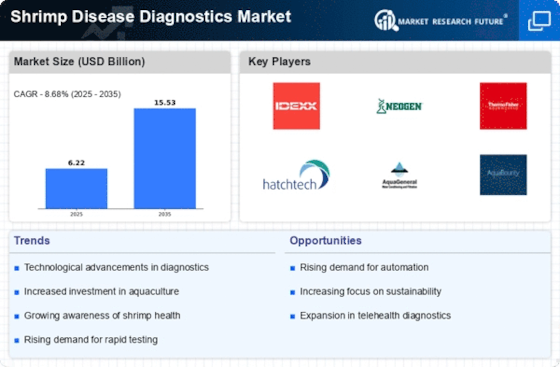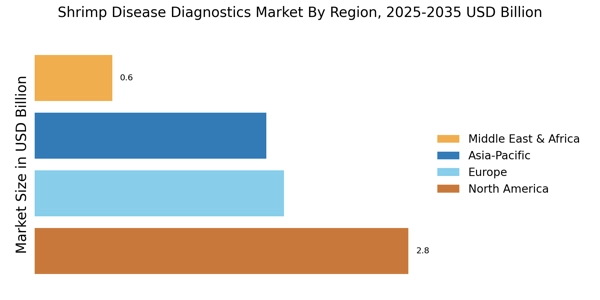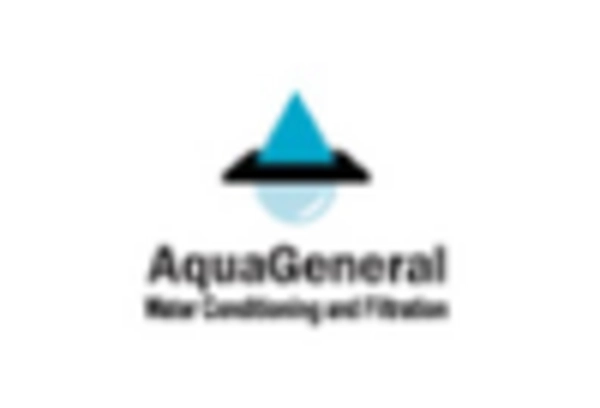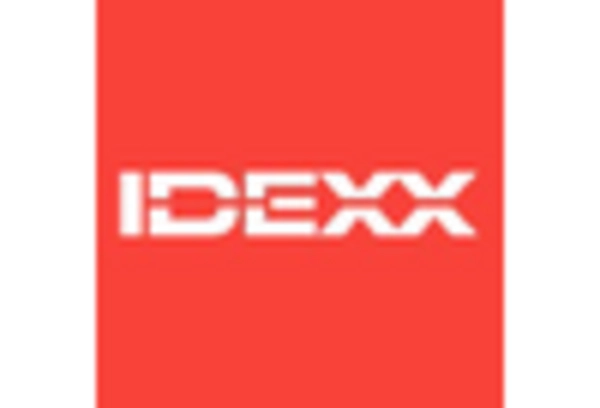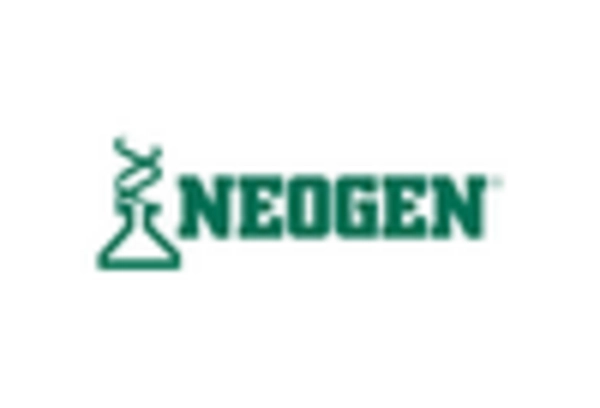Rising Demand for Shrimp Products
The increasing The Shrimp Disease Diagnostics Industry. As shrimp consumption rises, the need for healthy and disease-free shrimp becomes paramount. In 2023, shrimp production reached approximately 4.5 million tons, reflecting a steady growth trend. This surge in demand necessitates effective disease management strategies, thereby propelling the diagnostics market. Farmers and producers are increasingly investing in advanced diagnostic tools to ensure the health of their stock, which is crucial for maintaining supply chains and meeting consumer expectations. The Shrimp Disease Diagnostics Market is thus positioned to benefit from this growing demand, as stakeholders seek to mitigate risks associated with shrimp diseases that can lead to significant economic losses.
Technological Innovations in Diagnostics
Technological advancements play a pivotal role in shaping the Shrimp Disease Diagnostics Market. Innovations such as polymerase chain reaction (PCR) and next-generation sequencing (NGS) have revolutionized disease detection, allowing for rapid and accurate identification of pathogens. These technologies enhance the ability to monitor shrimp health effectively, which is essential given the increasing complexity of shrimp farming. The market for diagnostic tools is projected to grow at a compound annual growth rate of 8% from 2023 to 2028, driven by these technological innovations. As diagnostic methods become more sophisticated, they enable farmers to implement timely interventions, thereby reducing mortality rates and improving overall production efficiency. Consequently, the Shrimp Disease Diagnostics Market is likely to expand as stakeholders adopt these advanced technologies.
Increased Awareness of Aquaculture Health
The heightened awareness regarding aquaculture health and biosecurity measures significantly influences the Shrimp Disease Diagnostics Market. Stakeholders, including farmers, researchers, and policymakers, are increasingly recognizing the importance of disease management in shrimp farming. This awareness has led to the implementation of best practices and protocols aimed at preventing disease outbreaks. In recent years, educational initiatives and workshops have been organized to disseminate knowledge about shrimp health management. As a result, the demand for diagnostic tools that can detect diseases early has surged. The Shrimp Disease Diagnostics Market is thus experiencing growth as more stakeholders seek to invest in reliable diagnostic solutions to safeguard their operations and ensure sustainable production.
Focus on Sustainable Aquaculture Practices
The growing emphasis on sustainable aquaculture practices is reshaping the Shrimp Disease Diagnostics Market. As consumers become more environmentally conscious, there is a rising demand for sustainably sourced seafood, including shrimp. This shift has prompted aquaculture producers to adopt practices that minimize environmental impact and promote shrimp health. Effective disease management is a critical component of sustainable aquaculture, as it reduces the need for antibiotics and other chemicals. Consequently, the demand for diagnostic tools that facilitate early disease detection and management is increasing. The Shrimp Disease Diagnostics Market is thus positioned to benefit from this trend, as stakeholders seek to implement sustainable practices that align with consumer preferences and regulatory expectations.
Regulatory Frameworks and Compliance Requirements
The evolving regulatory landscape surrounding aquaculture practices is a significant driver of the Shrimp Disease Diagnostics Market. Governments and international bodies are increasingly establishing stringent regulations to ensure food safety and environmental sustainability. Compliance with these regulations often necessitates the use of advanced diagnostic tools to monitor shrimp health and detect diseases. For instance, regulations may require regular health assessments and disease reporting, compelling farmers to adopt diagnostic solutions. The market is expected to witness growth as stakeholders strive to meet these compliance requirements, which are essential for maintaining market access and consumer trust. Consequently, the Shrimp Disease Diagnostics Market is likely to expand as regulatory pressures drive the adoption of effective diagnostic technologies.


